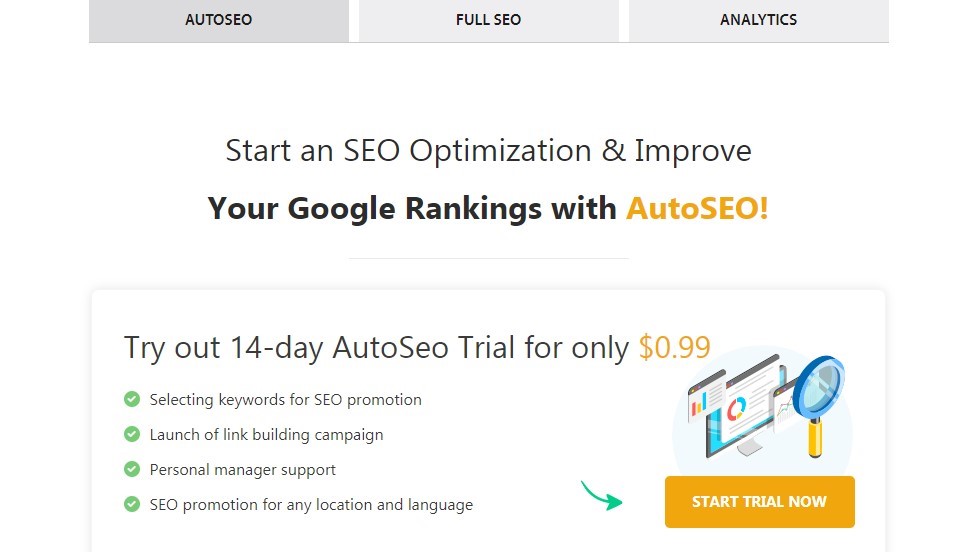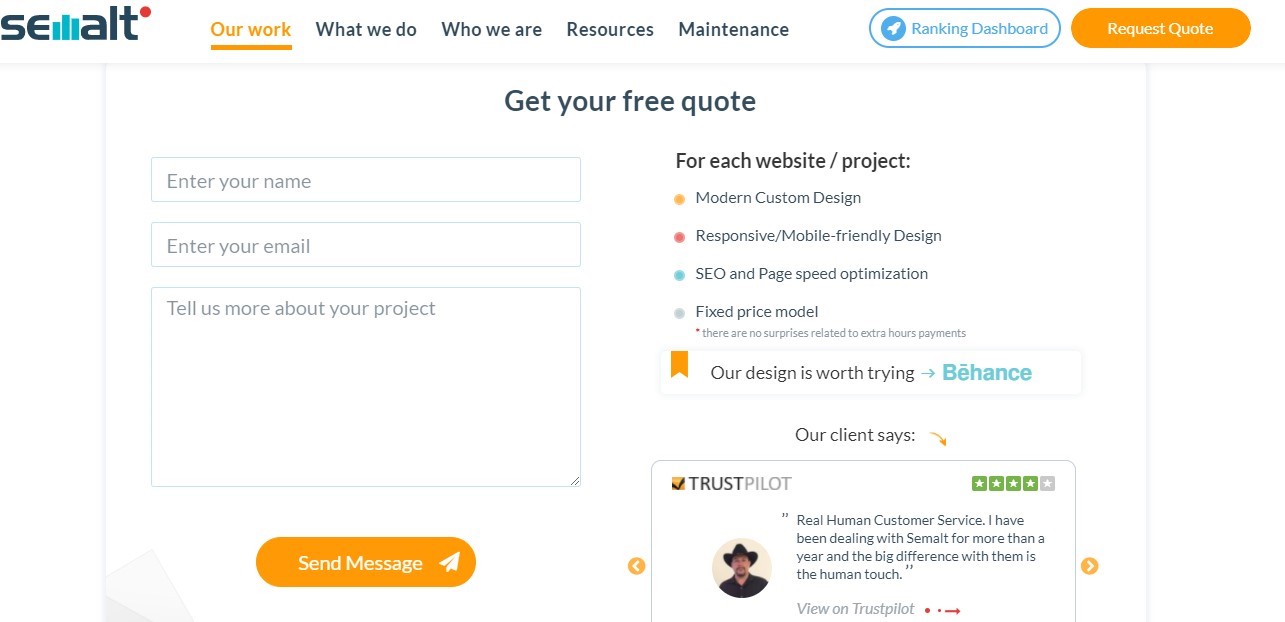Using Python For SEO - Handy Tips By Semalt
Table of Content
1. Introduction
2. What Is Python?
3. SEO Task Automation With Python
4. SEO-Related Tasks That Can Be Automated With Python
I. Keyword Optimization With Python
II. Page Speed Boost With Python
III. Python For Content Optimization
IV. Link Building
V. Optimizing Your Website For Crawling And Indexing With Python
5. Some Useful Python Tools For SEO
I. Pygments
II. Task Scheduler
III. Doc
IV. Django
V. Pyscape
6. Conclusion
1. Introduction
Many SEO professionals are switching from manual SEO tasks to Python. It is straightforward to use and can do many things that are otherwise difficult or time-consuming. SEO is a very competitive field. Therefore, every minute you save is valuable. This is especially true if you are running multiple campaigns.
Many people in the SEO industry are already using Python for various tasks to automate and save time for their clients. Python is an easy-to-use web programming language, which has a meagre price of maintenance. Python can be easily used for intent mapping, analytics, integration and deployment. In this article, you'll be learning the benefits of using Python for SEO and how to use Python to boost your SEO.
2. What Is Python?
Python programming language is one of the most popular programming languages used today. It is mainly used for developing websites, web applications, and other interactive platforms. It is a client-server-oriented scripting language that helps in performing complex tasks on the server-side. Python works best with Python code generators so that it can be easily integrated into various projects.
In addition, you are free to customize the functionality of a script written in Python. You can create modules, functions and classes according to your needs.
Basically, it is easy for you to write your own functions and commands if you understand Python. Apart from being an ideal programming language for beginners, Python also provides several convenience and powerful features. This is one of the reasons why using Python for your SEO is a great idea.
3. SEO Task Automation With Python
The use of Python to automate some SEO tasks can help you get high traffic to your website and boost your overall marketing campaign. It is not easy to rank high and gain high traffic on the web without any effort. So, you need to use all the tools available to better your marketing strategy and reduce your stress.
You should try to use all the features available to make your task easier and faster. It is a good idea to hire an SEO service provider, like Semalt to optimize your website using Python and other tools.

4. SEO-Related Tasks That Can Be Automated With Python
I. Keyword Optimization With Python
Using python, you can enter your business-related keywords and find relevant pages that are optimized for that keyword. For instance, if you entered the keyword "appliance repair" in the Google toolbar, JSPR would show you the pages with the highest relevancy for that term. With Python, you can install all of the necessary scripts and automatically crawl your site for optimized keywords.
You can even install some of the more advanced tools that will allow you to target specific keywords. There are many factors that come into play when boosting a website for internet marketing and keyword optimization with Python takes prominence. In particular, your choice of keywords will have a great effect on your page ranking, which directly affects how many visitors you receive. Keyword optimization with Python ensures that you get the best search engine optimization possible.
While you should always try to optimize for popular keywords and phrases, it is also important to keep in mind that the search engines can detect this and disregard certain websites as being spammy.
For instance, a sales page ranking high for the term "electronics" but has no real content on the page itself may end up in the "spam" category instead of the appropriate section of the search engines. So, with Python, you'll be able to carefully select keywords that have enough content to warrant a higher ranking.

II. Page Speed Boost With Python
Using Python to automate your page speed is beneficial for SEO purposes. In fact, it can catapult your SEO efforts to new heights. This is because SEO needs high-loading speeds for fast indexing of new pages. Google uses a Scorecard that ranks websites according to diverse factors, including its loading speed. So, with Python, you can improve the loading speed of your website in order to boost your SEO efforts.
Web page speed optimization with Python is the use of code scripts to increase your website's speed, and in some cases, its responsiveness. It is a technique for increasing website performance, functionality, user-friendliness and improving its overall search engine optimization. It is important that you make the scripts as readable as possible.
The best way to do this is to use the Python script block package. For the scripts themselves, the usage of test scripts is recommended. These scripts will allow you to experiment with different optimization setups for better results.
III. Python For Content Optimization
Content optimization is very important in website marketing, as it determines how much traffic your site will attract. The more traffic you have, the more potential clients and customers you will gain. Therefore, if you want to ensure the success of your website, you should utilize the services of content optimization so you can increase your website's traffic and profits.
With the use of Python for SEO content automation, you'll be able to create fresh, engaging content in less amount of time.

Often, technical SEO content is repetitive, over-duplicated, or difficult to read. However, using Python for automation will allow you to focus more on not just creating search-engine-optimized content but also original and engaging.
A top-notch way to boost your web page ranking with Python is to include a variety of high-quality external text. When the page ranking of a website is improving, it is often because the search engines have identified an important component of the site.
IV. Link Building
Backlink building with Python is definitely one of the most powerful ways to boost your website's search engine rankings. Backlinks are simply links leading from one web page to another. They are a signature in the form of text or a hyperlink pointing back to your website.
The backlink usually provides an incoming link from another web page, and if your content is unique and of good quality, other webmasters will naturally want to link to you as well.
There are many different kinds of backlinks. Some of them come from blog posts or articles written about your particular niche. Other backlinks called "referrals" can come from other webmasters who add your link to their website. Whatever method you choose, you will be surprised by the number of opportunities you have for creating backlinks using the Python programming language.
V. Optimizing Your Website For Crawling And Indexing With Python
Learning how to optimize your website for crawling and indexing with Python is the ultimate step towards increasing your website's productivity. Webmasters and optimizers are always looking for new ways to improve their websites and keep them at the top of Google and Yahoo search results. By using Python, you'll be able to optimize your site for crawling while also increasing its indexed pages.
Python can automate your website in order to automatically detect all the backlinks and active pages on your website and index them. Thus, you will be able to achieve better results without exerting too much effort.
There are many ways you can optimize your website and make it more search engine friendly. However, all of these methods have been tested many times over and found to have little effect on getting your website ranked well in the search engines.
Some methods do work; however, most others don't. This is where SEO for Python comes in. Python allows you to easily optimize your website for Google and Yahoo and make it callable in both of the search engines. This script works by reading the title tag of each page of your site and then using this information to determine if the page should be included in the search results or not. With the click of a button, this script will then target the keyword for the page.
5. Some Useful Python Tools For SEO
I. Pygments
Pygments is a very powerful data scraping tool for Python programmers. The creators were tired of working on HTML websites that took forever to render, and they wanted a Python solution. The code was eventually released as an open-source project. Pygments is great for writing SEO-rich scripts. If you're going to be writing a lot of script-heavy content, you'll want to use Pygments for your Python SEO tasks.
II. Task Scheduler
Task Scheduler is another great library to put to use for your Python scripts. If you want to run multiple tasks at once, such as updating your blog, running a test task, sorting your books or building a product catalogue, you'll want to use a task scheduler.
With the right task scheduler for your python script automation tasks, you can organize and run multiple jobs at once and automate most of the manual SEO process. You can save a lot of time by using the right software instead of trying to do everything yourself.
III. Doc
Doc is a powerful Python package that allows you to quickly build a number of different modules, which are then distributed to any web server that accepts a URL. Each module has a different purpose, and it is important to select the ones that will be most helpful to your website.
The module that you use should index all of the major search engines, and it should also be programmed to send an email automatically to the relevant websites whenever a change in the meta-tags occurs. The advantage of this method is that there is no need for a human to manually submit these links, and it does not affect search engines.
IV. Django
The popular Python web development tool, Django, is a great tool for making interactive websites. One of the best features is the ability to quickly build search engine friendly modules. These modules can be written in any programming language, and they are compiled and released with an easy to use setup script.
V. Pyscape
Python Pyscape for SEO is a very popular keyword tool and SEO software that help you analyze keywords and choose the most appropriate keywords to optimize your website. This tool is specifically designed to find keywords that are searched throughout the web, as well as competitive keywords. The keyword analyzer will also help you analyze each page of your website so you can discover how much visitor traffic you regularly receive.
Another important feature of Python Pyscape is that it allows you to create a sitemap. You can use the sitemap to assist with keyword research and planning. The sitemap can even be used to help you create a new sitemap for a previous website that you want to bring over to your new website.

6. Conclusion
If you've not been incorporating the use of Python into your SEO strategies, you certainly should start now. Asides from boosting your SEO efforts, it would reduce your work stress. From keyword researching to content optimization to link building, there's so much Python can help you do concerning SEO. Since Python is a relatively hard area, you could hire an SEO expert team such as Semalt to help you get started.
